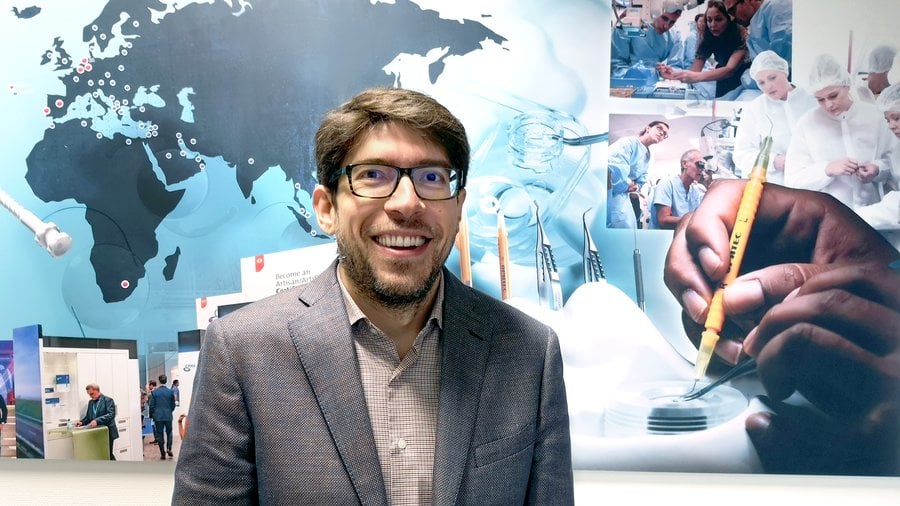How did your career at Ophtec start?
“I started at Ophtec as Development Engineer. After a year, my job changed to Development Leader. In that position I not only test and develop new products, I am also jointly responsible for the portfolio. If a supplier changes a base material, for instance, we have to study how this affects our products.”
“It might come as a surprise, but I studied Astronomy in Milan and completed my PhD in Amsterdam. However, a permanent job in astronomy would have entailed working a number of years abroad, living the expat life, while my girlfriend had her own career at the University of Groningen. I then came to an arrangement with the Technical Director of Ophtec and convinced him I would be able to fill any gaps in my knowledge. And I think that worked out very well.”
“One important aspect of my job is acting as a ‘conductor’, guiding the team towards an end result, regardless of the discipline. I have, of course, studied Ophtec’s product portfolio and I was fortunate to have the opportunity to do a lot of necessary training, such as project management, ophthalmology and legislation. These days I also learn a lot by visiting international congresses.”
How does legislation affect developments at Ophtec?
“I consider the medical legislation that Ophtec has to deal with mainly as the rules of the game that form the framework within which we operate. As we manufacture products that are implanted in the human body, and more specifically the eye, there are a lot of rules we have to comply with. They also change all the time, in all the countries we operate in. We use EU and US legislation as our benchmark and our regulatory department checks whether there are any additional requirements for other countries."
“In terms of development, I mainly work on new lenses and new surgical accessories. To me, development is the most enjoyable part of my work. We are not a major player that dominates the market, such as Apple, but we do have revolutionary ideas and develop revolutionary improvements that give us a good reputation in our industry.”
Can you give some examples?
“We have a number of signature products, such as the ‘iris-fixated (claw) lenses’, which we use as a basis to develop new ideas. The company Ophtec was set up to find a cure for cataract, for which the right materials and surgical techniques did not yet exist at the time. The founder of Ophtec, a well-known ophthalmologist, came up with the idea of using the iris to fixate the lens to, an idea that we have built on since then. But we also manufacture lenses that can be used in the capsular bag to replace the natural lens.”
“In addition, we produce surgical accessories, which is another of our signature ranges. More and more of these accessories are aimed at simplifying the implantation and fixation of the lens."
What appeals to you in your work as a developer?
“My working day is very varied; I don’t have a fixed working pattern. I regularly have project meetings with multiple departments. Projects have long lead times, often several years long. Sometimes we have to make unexpected improvements, which also comes with a lot of hectic activity."
“I regularly mentor Biomedical Engineering students, mostly from Groningen. I also work with international universities, such as in Genoa and London. This mainly concerns simulations of the fluid dynamics in the eye: what happens to the fluids in the eye when you implant a lens, and how can you influence that. Simulations help you understand what a lens does to the eye and what you need to change to accommodate this."
“In addition to the variation, I also like the multidisciplinary nature of my job. I have to have a good relationship with the technical people, but also with other departments, such as Quality, Marketing, Sales, etc. That way, you get to know about all aspects needed to make and sell a product. That will keep me busy for some time!”

